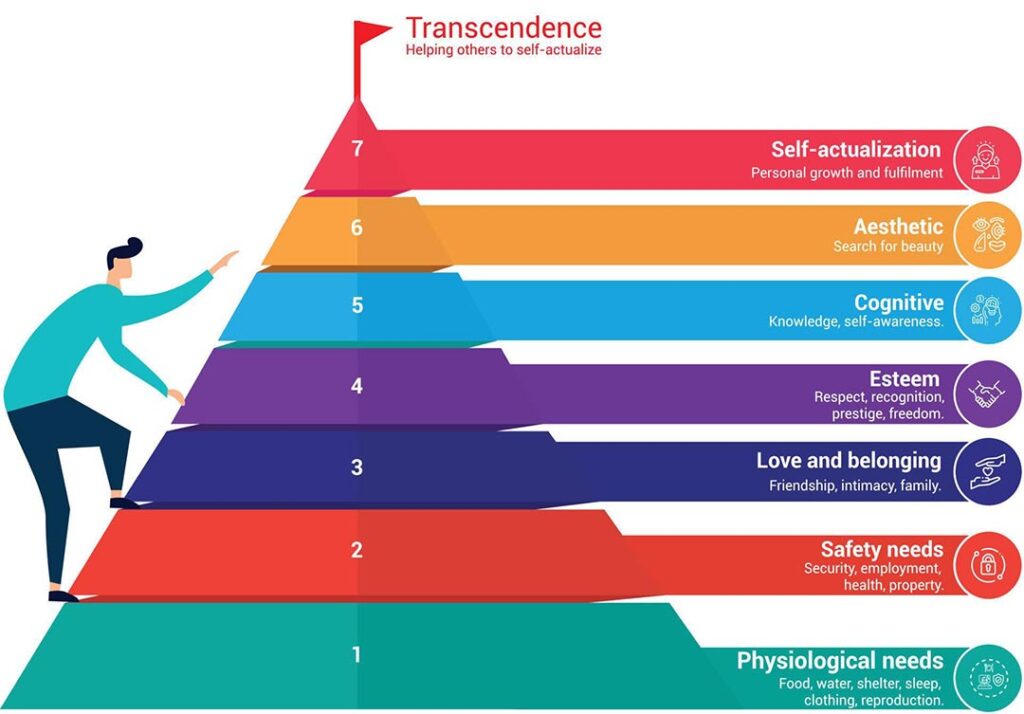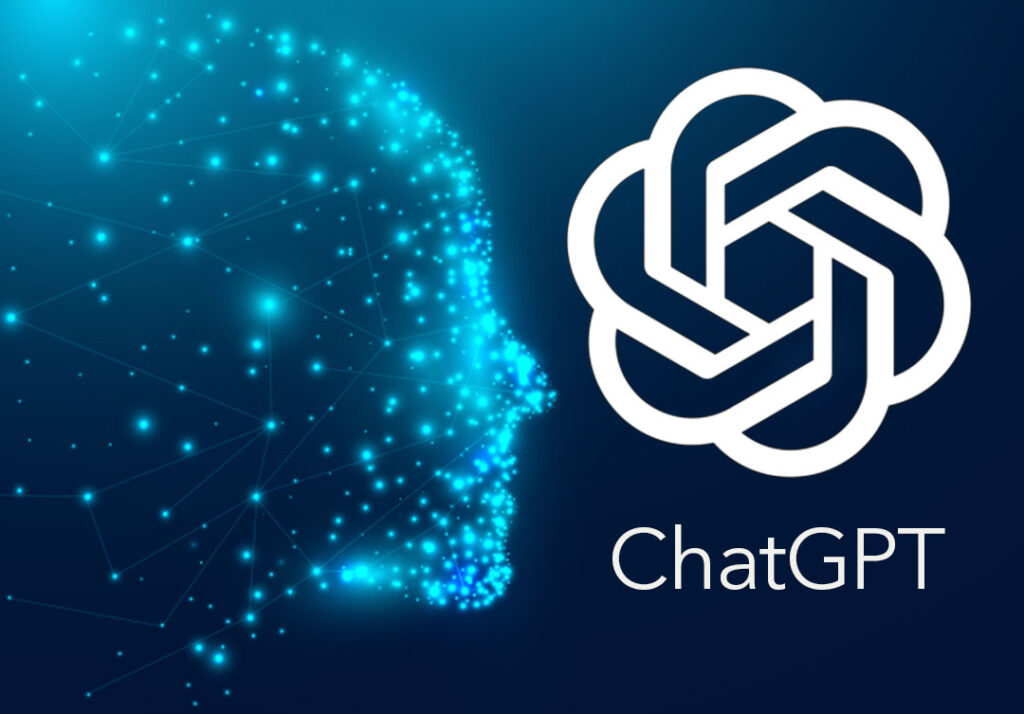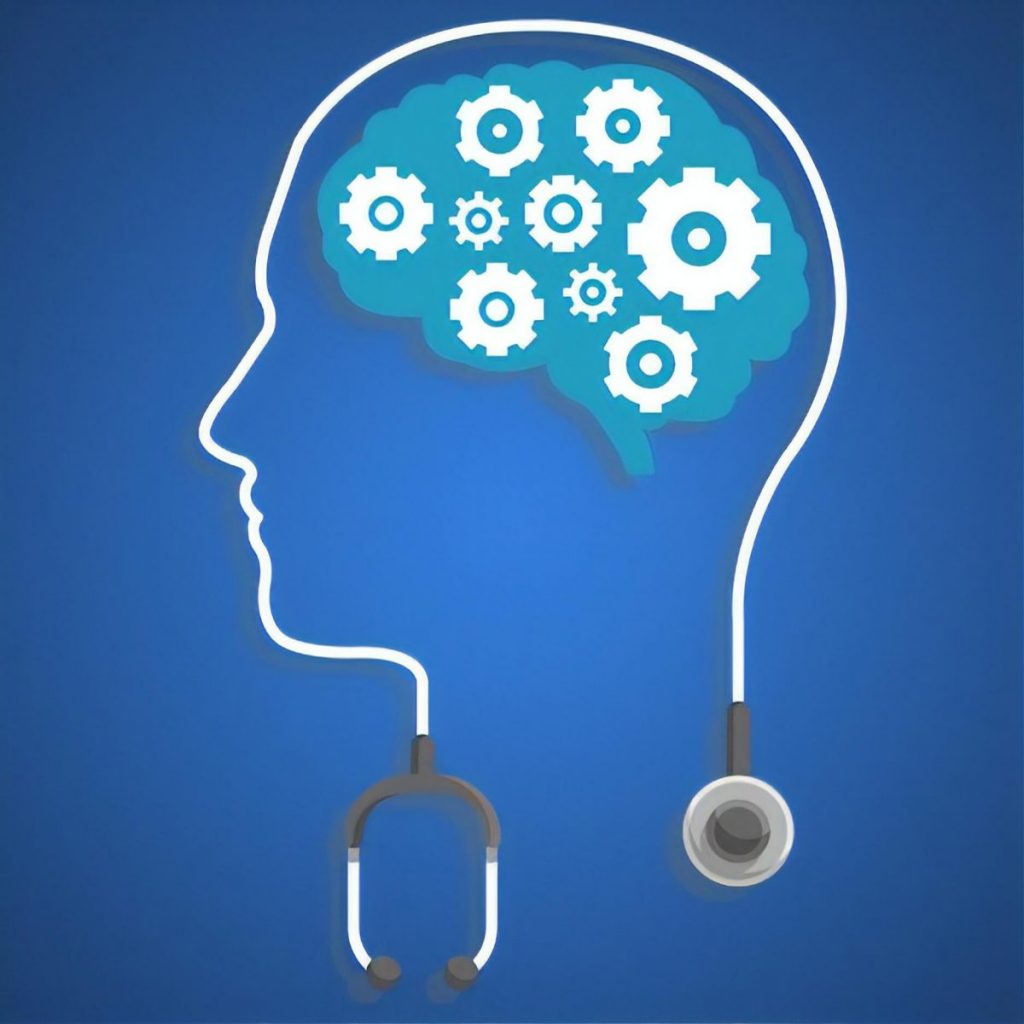Emotional intelligence (also known as emotional quotient or EQ) is the ability to understand, use, and manage your own emotions in positive ways to reduce stress, communicate effectively, empathize with others, overcome difficulties, and settle a conflict. Emotional intelligence helps you build stronger relationships, succeed at school and work, and achieve your career and personal goals. It can also help you connect with your emotions, turn intention into action, and make informed decisions about the things that matter most to you.
You probably know people who are academically brilliant but socially inept and failing at work or in personal relationships. Your intellectual ability or intelligence quotient (IQ) alone is not enough to be successful in life. Yes, your IQ may help you get into college, but it's your EQ that will help you manage stress and emotions as you face your final exams. IQ and EQ co-exist and are most effective when they form each other.
Emotional Intelligence and Leadership
The 5 components of emotional intelligence that an effective leader should have are as follows;
Self-awareness Self-adjustment
Motivation Empathy
Social skills
Self-awareness: A deep understanding of one's own emotions, strengths, weaknesses, needs, and motives. People with high self-awareness do not succumb to excessive criticism or unrealistic despair. On the contrary, they are honest with themselves and others.
Motivation: To act with the desire to succeed. People who are motivated by a drive to achieve are passionate. They try to pass creative tests, enjoy learning and take pride in getting the job done well.
Self-adjustment: Putting onesself-talk into a calm mode of thinking, can be much more helpful than anxiety and bad moods. It is an inner speech that calmly thinks, analyzes, and produces solutions about why the current situation may have happened.
Easily observable signs of self-adjustment;
- Predisposition to reflection and understanding.
- Comfort in the face of uncertainty and change.
- The ability to resist impulsive impulses and honesty.
Empathy for leaders: It means understanding the feelings of employees, among other factors, in the decision-making process. Today, increased teamwork is particularly important because of globalization and the need to retain talent.
Social skill: The ability to manage one's relationships with others. People who can understand and control their own emotions and empathize with the emotions of others are often also effective in managing relationships.
Self-control: It is called keeping one's attention on the subject by directing one's attention to the desired place and resisting distractions. It is popularly known as the will.
Self-controlled people are healthier, more successful, law-abiding, and financially better off.
Think of it like Traffic Lights;
- Red light, ‘Stop, calm down, think before you act.’
- The yellow light says, 'Slow down, think about possible solutions.'
- Greenlight, ‘Execute the plan, see if it works?’ means.
Empathy is of 3 types:
Cognitive empathy: Understanding another's views and thoughts.
Emotional empathy: Understanding another's feelings.
Empathic attention: The ability to sense what someone else needs you for.
Leaders who are confident, democratic, approachable, and adept at direction achieve the best climate and job performance. It always makes a difference if they show the style that meets the needs of the situation, instead of choosing a style that suits the temperament. The best leaders master many styles and have the flexibility to switch to different styles as circumstances change.
Relationship between Success and Emotional Intelligence
You may think that to be successful in your career, you need to have more professional knowledge and experience than your competitors. However, in order to make a difference and be successful in your career, emotional intelligence is necessary apart from professional knowledge. Research supports that the success of individuals increases as the emotional intelligence (EQ) level, which supports the logical intelligence level (IQ), increases. Although this prediction is not valid for all professions, it becomes a factor affecting success in jobs where one-to-one interaction with people is required. We can say that the effect of emotional intelligence has become evident in work areas such as the service, health, and education sector, teaching, leadership, advertising, and marketing.
People with proven success with Emotional Intelligence
To be successful in your career, you must also have the 'personal competence' and 'social competence' skills that individuals with emotional intelligence have. Individuals with personal competence know how to manage their positive or negative emotions and turn their emotions into benefits. Thanks to this aspect, a person with a high level of emotional intelligence can act logically and calmly and produce constructive solutions when faced with failure. It can stand unprejudiced in the face of physical, economic, technological, or managerial changes and can adapt itself to the new situation in a short time. These are therefore on the way to success and emotional intelligence, which is effective in human relations; it enables people to take place more effectively in areas such as leadership and management.
As a result, since individuals with high emotional intelligence improve their communication skills and self-awareness with people, they can be more aware of the mistakes they make and the mistakes made by others and they can face them more easily. Especially by understanding people in the business environment and communicating well with them, they can easily move to the position of a real leader by correcting mistakes as a team. One of the biggest differences between being a leader and being a boss is emotional intelligence. No matter how competent individuals are, they cannot help themselves and their environment adequately without their emotional intelligence. It is highly aware leaders who keep societies and companies afloat.
Share:
Son Yazılar

Healthy Growth: Why Organizations Sl ...
Companies want to grow. More market share, higher revenues, larger organiza ...

Sustainable Leadership: Power Built ...
Today, the concept of sustainability sits at the center of almost every str ...

Why Do Managers Struggle with Genera ...
A reality long felt in the business world is this: there is a natural diffe ...

Leadership
Support, love, and trust received in childhood nurture self-confidence, cou ...

Generation Z: Not Just a Mirror, but ...
One of the most frequent complaints in today’s business world is: “Young em ...

A New Era in Business with Artificia ...
The Industrial Revolution began with steam. Then came electricity, computer ...

The New Face of Entrepreneurship: Wo ...
The new generation of entrepreneurship is no longer solely profit-driven; i ...

Understood Employees Contribute and ...
In the corporate world, we often hear statements like: “They’re talented, b ...

The Silent Power of Corporate Succes ...
In today's business world, organizations operate in an environment shaped b ...

Customer Relations and Training in B ...
Bancassurance, a business model in which banks market insurance products to ...

What Awaits the Business World? A St ...
Digitalization is no longer just a technological trend but a necessity for ...

Digital Transformation in Conflict M ...
Conflict is a reality we encounter in all aspects of life. Whether at home, ...

Neova Sigorta Leadership Certificate ...
Neova Sigorta Leadership Certificate Program from a Coaching Perspective ha ...

We have completed our Kafein Technol ...
We have completed our Kafein Technology Strategic Leadership Training.

We completed our training at the Ist ...
We completed our training at the Istanbul City Council "The Budget is Yours ...

The Road to Success: Market Dynamics ...
In today’s rapidly changing market conditions, the importance of management ...

Leadership in the Digital Age: A New ...
Leadership in the digital age requires embracing continuous learning, innov ...

Mastering Risk Management
Mastering risk management is not merely an option for businesses but a nece ...

International Banking in Germany: A ...
Germany, with its strong industrial structure, high-technology products, an ...

Leadership and Maslow's Hierarchy of ...
Abraham Maslow's hierarchy of needs is a fundamental psychological theory u ...

Leadership and Sustainability of Org ...
Today's business world is characterized by continuous change, technological ...

The Importance of Coaching Skills f ...
The Importance of Coaching Skills for LeadersCoaching skills are essenti ...

Fintech in Turkey: The Rise of Finan ...
Fintech in Turkey: The Rise of Financial Technology

Bancassurance
Bancassurance is a business model that is among the financial services offe ...

Banking and Frankfurt
When the banking and finance sector in Europe is analyzed, it is seen that ...

Digital Banking and Germany
Digital banking is a banking service where customers can do their banking o ...

Banking in Germany
Euro used since 2002 in The Eurozone, the currency of 19 EU members. There ...

Strategic Communication
Strategic communication plays a critical role in the success of an organiza ...

Importance of Supply Chain
The supply chain is a critical factor in which a company manages the flow o ...

Key to Success: Going Digital
Digital transformation is a transformation process that aims to increase th ...

Welfare
Poverty and inequality are one of the biggest challenges the current societ ...

ChatGPT
ChatGPT, developed by the OpenAI company known for its work and research in ...

What is Emotional Intelligence and w ...
Emotional intelligence (also known as emotional quotient or EQ) is the abil ...

The Importance of Women's Employment ...
Women's participation in the workforce is closely related to the level of d ...

Digital Banking II – Digital Banking ...
A serious step taken for the spread of “digital banking” in Turkey, providi ...

The Perception of Morality within Ma ...
If everybody in the world jumped out of a window, would you? This question ...

Digital Banking
Digital banking is a banking technology that offers customers the opportuni ...

Banking, Artificial Intelligence and ...
We have heard the concepts of metaverse, artificial intelligence and machin ...

Banka Şube Müdürünün El Kitabı 2. Ba ...
Banka Şube Müdürünün El Kitabı 2. Baskı Çıktı – Çiğdem Güven

Green Asset Ratio
Sustainable finance has an important place among the investments made for t ...

Servant Leadership
There is an effective form of management that we often hear about today: se ...

Sustainability In The Global Banking ...
Before Covid-19 wreaked havoc on the world’s economies, the global banking ...

Banka Şube Müdürünün El Kitabı – Çiğ ...
Banka Şube Müdürünün El Kitabı – Çiğdem Güven

Revolution of Digital Banking
With the European Central Bank considering to investigate for a digital cur ...

The Global Leadership Program
The Global Leadership Program held on October 22, 2021 was completed.

Taking Action and Making Decisions i ...
Uncertainty is the fact that an event is not within the framework of certai ...

Türkisch-Deutsche Industrie-und Hand ...
Türkisch-Deutsche Industrie-und Handelskammer

Hacettepe University Entrepreneurshi ...
Hacettepe University Entrepreneurship and Investment Society

Wind of Change
Change is an important concept that must be managed for employees at all le ...

Organizational Justice
“What is justice? Giving water to trees. What is injustice? To give water t ...

Open Banking
Digital transformation has started to show its effects in every aspect of o ...

Digital Literacy And Corporate Life
There are many innovations that managers and employees need to follow in or ...

Financial Literacy
The words money and economy are two important concepts that have a great pl ...

Sustainability and Bank
The solutions we have found to our various needs throughout history and ada ...

Adaptability, Flexibility and Leader ...
Being able to adapt to changing conditions is very, very important not only ...

Creativity and Leadership Relationsh ...
The world is getting more competitive every day. For this reason, the servi ...

Competitive Analysis and Banking Sec ...
Competition analysis requires you to examine your direct and indirect compe ...

Delegation in Management
The statements "two heads are better than one" or "teamwork makes the dream ...

Climate Change
All creatures evolve to best adapt to environmental impacts. Those who are ...

Change of Banking Service Channels i ...
Global crises such as the pandemic, force the existing structures to change ...

Innovation
It is undeniable that innovation has a very important place in today's worl ...

Artificial Intelligence
Artificial intelligence is no longer just something specific to science fic ...

Entrepreneurship
Entrepreneurship is the process of starting a new business that incorporate ...

Global Leadership
The world is changing day by day and the information we have today is out o ...

Resilience and Leadership
We encounter many events in life that cause us difficulties and stress. How ...

Entrepreneurial Spirit for Leaders
Why is important for success? The conventional perception of entrepreneursh ...

The webinars for Team Motivation, Cr ...
The webinars for Team Motivation, Crisis Management, Digital Leadership and ...

Finance Leadership in a Pandemic
Crises bring along a period in which institutions need to review their fina ...

Crisis Management
Crisis is a state of tension that puts the existence and goals of an organi ...

Strategic Leadership and Pandemic
Strategic Leader is the person who sets the roadmap to achieve the ultimate ...

Awareness, Appreciation, Success
It is very important for a person to recognize himself, discover his power ...

Woman and Career
People who are raised by unemployed mothers have a mother model in their mi ...

Conflict Management
In the broadest sense, conflict is disagreement between two or more people ...

Leading with Kindness
Kindness is an important virtue. Kindness in all areas of life makes relati ...

Smart Meetings
Meeting management is the process of managing all stages and components of ...

Negotiation Management
Negotiation is defined as a dialogue aimed at reaching a common and benefic ...

Virtual Leadership
The repercussions of the digitalization process in business life were sprea ...

Manager and Patience
Patience is an important concept in management. Patience is active, not pas ...

Being All Ears
Human beings differ from other creatures in their way of communicating. Com ...

Networking
The fact that managers in the corporate world act with awareness of network ...

Asking Strong Questions
For managers, asking a strong question is an important skill. Managers, who ...

Managing Yourself
The manager at work is in communication with the other parts of the busines ...

Mental Immunity
In the fight against Coronavirus (Covid-19) pandemic, knowledge and awarene ...

Coaching and Effective Communication ...
Coaching and Effective Communication Training TD-IHK

"On Coaching and Communication in Co ...
Coaching is a service that forms the basis of success stories by creating a ...

The Future of Digital Finance in the ...
The Cigdem Guven Seminars welcomed one of the most successful businesspeopl ...

Making Life Beautiful With Plastic S ...
Çiğdem Güven Seminars, which welcomes the specialist and inspirational spea ...

The Secrets of How Our Brains Works ...
The seminar started with the opening speech made by Cigdem Guven, and then ...

Yildiz Technical University Coaching ...
Those who want to make a professional entry to the personal development sec ...

Yildiz Technical University Coaching ...
Yıldız Technical University’s Coaching Certification Program aims to fulfil ...

Making Life Beautiful With Plastic S ...
Bringing different point of views with its successful and authentic speaker ...

In Search of Lost Sounds – A Persona ...
Aiming to provide different perspectives about life with its inspiring gues ...

Yıldız Technical University Coaching ...
In addition to having provided leading senior executives with individualize ...

To Succeed is to Discover Yourself, ...
Çiğdem Güven, who has been bringing many well-known experts of different ar ...

Peace of Mind With Spiritualist Yoge ...
Providing individualized coaching services to leading senior executives wit ...

Dealing With Life’s Storms, With Yog ...
Çiğdem Güven, who has been bringing many well-known experts of different ar ...

Spiritual Intelligence With Yogesh S ...
Aiming to provide different perspectives about life with its inspiring gues ...

